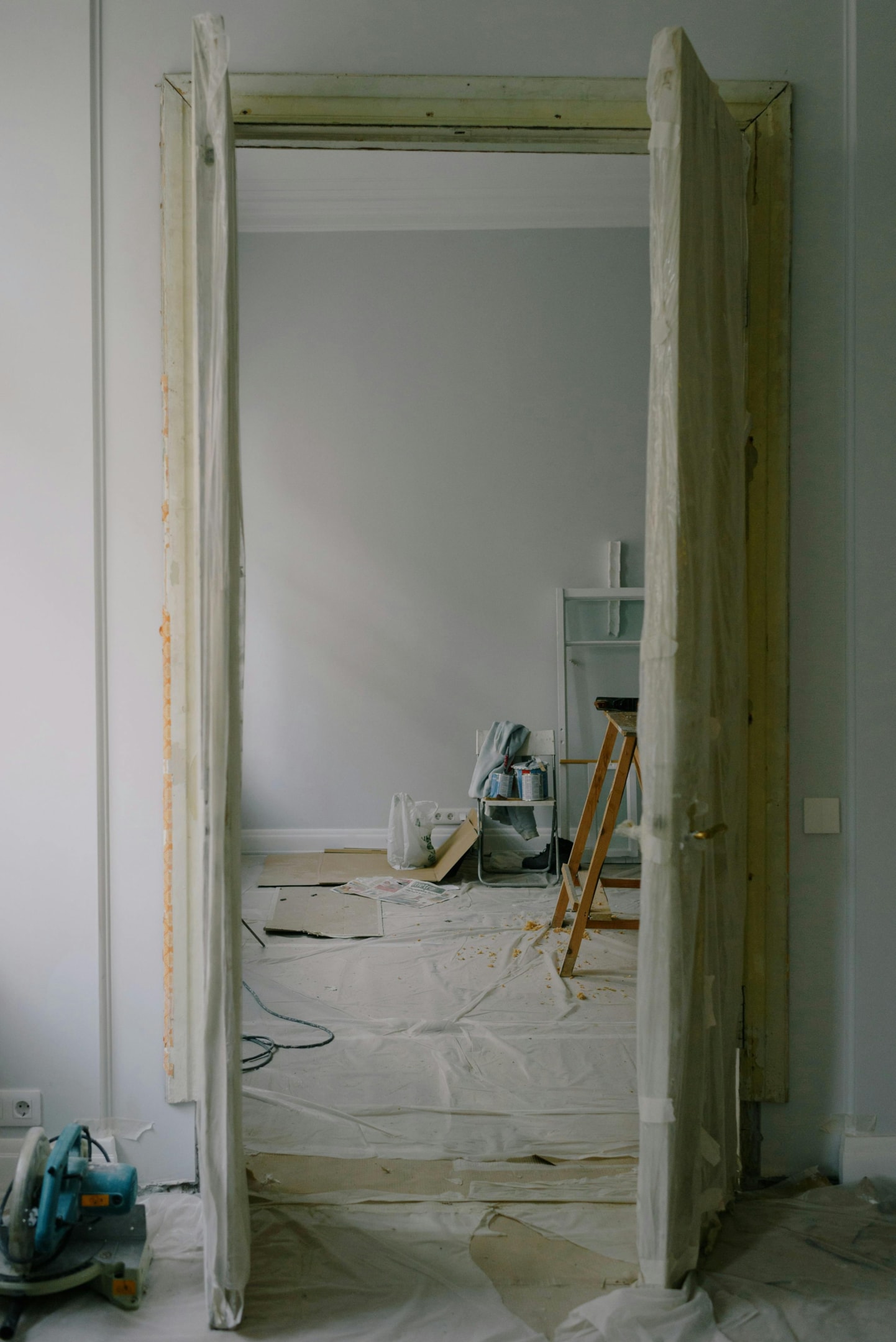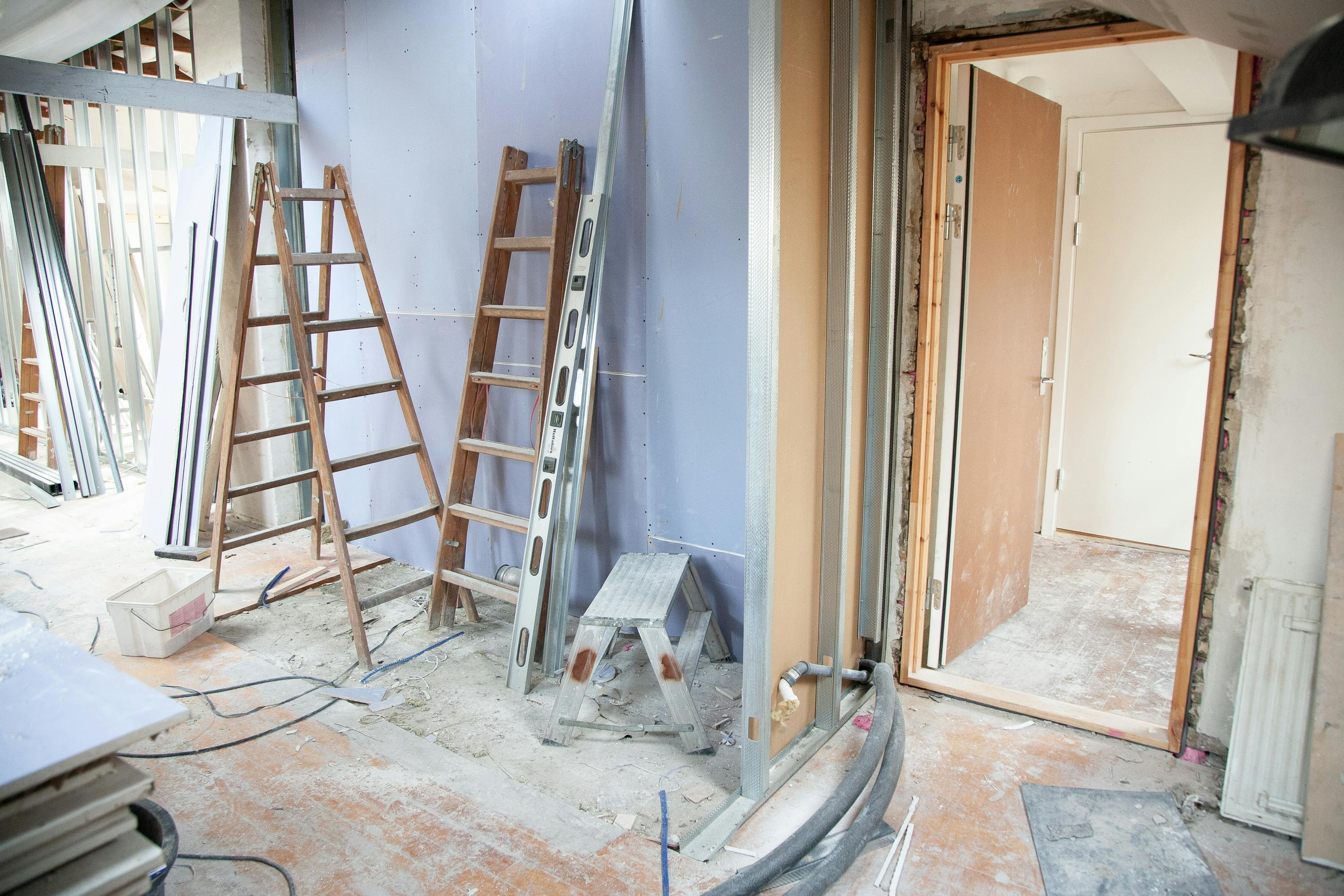How to Flip Houses Successfully: Essential Tips and Common Pitfalls
To flip houses successfully, you need effective strategies and careful planning. This guide covers everything from buying and renovating to selling properties for maximum profit, including how to flip houses successfully. You'll learn about budgeting, market research, and key renovation tips to ensure your house flipping journey is a success.

Key Takeaways
Master the 70% Rule: Ensure your total investment doesn't exceed 70% of the property's after-repair value for a profitable flip.
Conduct thorough market research: Understand local trends and demographics to select the best properties and tailor renovations for potential buyers.
Stay financially savvy: Create a comprehensive budget that includes all costs— from acquisition to holding expenses— to avoid costly pitfalls.
Understanding House Flipping
House flipping involves buying, renovating, and selling properties for profit, often within a few months to a year, by capitalizing on market conditions and property enhancements. This venture can be both enjoyable and lucrative with the right strategy. Experienced flippers emphasize the importance of skills, knowledge, and resources to navigate its complexities. The appeal lies in potential profits, but success hinges on informed decisions and strategic investments in real estate. New flippers should focus on networking, understanding basic repairs and costs, and assessing cash availability to make savvy investment choices and avoid common pitfalls.
The 70% Rule Explained
The 70% rule in house flipping suggests that the combined cost of purchase and renovations should not exceed 70% of the property's estimated after-repair value (ARV). This helps investors evaluate an investment's potential profitability by keeping costs in check and ensuring a buffer for unexpected expenses. To apply this rule, determine the ARV, subtract the repair costs, and the result is the maximum price you should pay.
For example, if a property's ARV is $300,000 and the estimated renovation costs are $60,000, the maximum purchase price should be $150,000 (70% of $300,000 - $60,000). This approach helps ensure profitability. Remember, the 70% rule is a general guideline, not a strict formula, and should be used alongside other evaluation methods.
Importance of Market Research
Understanding local market conditions is essential for successful house flipping. Conducting thorough market research helps identify areas with high appreciation potential, ensuring your investment property attracts buyers and sells at a profitable price. Ignoring market shifts and trends can lead to overpaying or underestimating costs, significantly impacting profitability. Real estate agents can offer valuable insights to prevent overpaying due to inaccurate market assessments. This understanding also aids real estate investors in negotiating better financing options and tailoring renovation strategies to meet buyer preferences, ultimately leading to good deals.
Staying informed about market fluctuations enables smarter investment decisions and maximizes profits. By keeping abreast of local trends and demographics, you can tailor renovations for potential buyers and achieve maximum profit. This proactive approach to market research is crucial in navigating the complexities of house flipping and ensuring your investments yield the highest returns. By leveraging the expertise of real estate professionals, you can make informed decisions that align with current market conditions and secure a successful and profitable flip. See Real Estate Market Trends: What to Expect in 2026 for tips on evaluating the current market in order to make a well informed decision when making a purchase.

Financial Planning for House Flipping
Financial planning is vital for a successful house flipping project, as establishing a clear budget helps avoid financial pitfalls and ensures profitability. Investors must account for all costs, including acquisition, renovation, holding expenses, utility costs, property taxes, and other hidden expenses. Holding costs, associated with owning the property during renovation and selling periods, can quickly add up and eat into profits. Carrying costs and closing costs can also contribute to these financial burdens. Underestimating costs often leads to costly mistakes, so a comprehensive and realistic budget is essential, especially in a worst-case scenario. To learn the ins and outs of financing for your house flipping ventures, read How to Finance a House Flip: A Guide for Real Estate Investors.
Budgeting and Cost Analysis
Develop a budget before purchasing a property to prevent financial pitfalls. Include the purchase price, renovation costs, taxes, insurance, and utilities. Consulting local contractors helps estimate repair costs and common expenses, aiding in effective budget preparation. Preliminary research on expected renovation costs assists inexperienced flippers in budgeting accurately. Successful flipping often relies on careful budgeting, as seen with experienced flippers like Jennifer P. and Louis A., who enhanced a property while staying within budget despite unexpected costs. Holding costs can impact profits if renovations extend longer than expected, increasing utilities, insurance, and maintenance expenses. Efficient project management and realistic budgeting are crucial, incorporating a contingency budget for unexpected repairs. Efficiently managing the project keeps it on track and within budget, minimizing financial risks and maximizing profitability.
Financing Options
Having cash on hand is crucial for starting in house flipping, as it involves less financial risk compared to financing. In fact, 63% of house flips nationwide are purchased with cash. However, if you lack sufficient cash, several financing options can help secure the necessary funds. These include traditional mortgages, private lenders, and personal funds. Hard money loans, designed for house flipping, offer quicker approval and focus on the property's potential rather than the flipper's history. These loans are short-term with higher interest rates and larger down payments. Private lenders often provide more flexible terms compared to traditional banks, benefiting house flippers. Research lenders and mortgage payment rates to find the best financing option for your house flipping strategy. Weighing the pros and cons of each financing method will help you choose the one that aligns with your financial planning and reduces investment risk. To learn more details of different types of financing for your house flip, read Creative Financing for Real Estate Investors: Top Tips to Save Money.
Finding the Right Property
Selecting the right property is crucial for a successful house flipping venture. Focus on distressed or undervalued properties with high resale potential. These properties should be in sound condition overall, requiring only manageable cosmetic updates rather than extensive structural repairs. When negotiating, start with a low offer and move upwards to secure a better deal.
Having multiple properties in mind as backup options is advisable if the primary option falls through. First-time flippers should consider starting with smaller projects to build experience and confidence. Ensuring the property meets your criteria and has the potential for a profitable flip is essential for success.

Property Inspection Tips
Hire a professional home inspector to uncover unforeseen problems that can impact profit margins. A professional inspection helps identify necessary repairs before purchasing, allowing for an informed decision. Once under contract, a thorough inspection provides a clear picture of the property's condition and potential issues that need addressing. Identifying problems early allows for budgeting necessary renovations and avoiding unexpected costs that could derail the project. This step is crucial for keeping your house flipping project on track and within budget.
Evaluating Neighborhoods
Understanding the demographics and amenities of a neighborhood is crucial in identifying potential buyers' preferences and needs. Amenities such as parks, schools, shopping centers, and public transport significantly increase a property's desirability and ease of sale. Tailoring the renovation and marketing approach to fit the demographic and amenities can boost market appeal.
Renovation Strategies
Effective renovation strategies are crucial for maximizing the property's value and ensuring a profitable flip. Focus on key areas like kitchens, bathrooms, flooring, and landscaping. Upgrading to smart home systems, HVAC, and new appliances can also increase the property's attractiveness. If you lack repair skills, hire contractors to ensure quality results. Building a team of trusted contractors and service providers is necessary for expediting renovations and maintaining high standards. Proper renovation planning and execution are key to achieving a successful house flip.
Essential Renovations vs. Over-improvements
Updating kitchens and bathrooms with modern, neutral designs is crucial to appeal to potential buyers. Fresh paint, updated hardware, and new landscaping are small renovations that can make a significant impact without breaking the bank. Staying within budget and focusing on updates that boost value is essential. Consider necessary repairs and upcoming trends when making improvements to ensure the property appeals to the target audience. Consulting contractors before creating a budget provides a clearer picture of expected renovation costs and helps avoid over-improvements, as too many unnecessary updates can cause the after-repair value to exceed the target buyer's price range, making it harder to sell. You can save costs by doing certain updates yourself, such as drywall, stripping wallpaper, and painting. However, it's important to balance DIY efforts with professional help to ensure quality and efficiency in the renovation project.
Hiring Reliable Contractors
Building a network of trustworthy contractors is crucial for ensuring quality work and timely completion of your house flipping project. Vet contractors by checking their experience and references to ensure they can deliver high-quality work within the agreed timeframe.
Avoid paying the full price before the work is paid to safeguard against potential issues. Establish clear communication and expectations with your contractors to ensure the renovation process runs smoothly and efficiently.

Marketing and Selling Your Flip
Marketing and selling strategies are vital for ensuring a successful flip. Staging your flipped house helps buyers envision themselves in the space, facilitating a faster sale. High-quality photography and videos can significantly enhance your listing's appeal online, attracting more potential buyers.
Leveraging social media platforms to showcase your property can broaden reach and generate more interest from potential buyers. Effective marketing strategies help you sell high and achieve a profitable flip.
Staging and Curb Appeal
Curb appeal is crucial for making a strong first impression on potential buyers. Improving curb appeal can involve landscaping, painting, and other exterior enhancements that attract potential buyers. Neutral decor in staging can attract a wider array of potential buyers by creating a move-in-ready ambiance.
Virtual staging is a cost-effective alternative that can enhance online listings without the expense of physical staging. Effective staging and curb appeal will make your property stand out in the housing market.
Pricing Strategies
Pricing your flipped house correctly is essential for maximizing profits and ensuring a quick sale, especially in volatile real estate markets with high interest rates. Setting a competitive price based on current market conditions rather than emotions helps avoid unrealistic expectations and increased holding costs. An overpriced property can lead to extended time on the market, incurring additional costs for mortgage, utilities, and taxes. To maximize profit and minimize market time, seek guidance from a real estate agent who can provide competitive pricing advice, ensuring a successful and profitable flip.

Common Pitfalls to Avoid
Avoiding common mistakes is vital to ensure a successful house flipping project. A frequent error made by novice house flippers is rushing out and buying the first house they see. This impulsiveness can lead to significant financial loss if the property doesn't meet the criteria for a profitable flip. Flipping houses involves several risks and challenges, especially without adequate knowledge.
Changing market conditions can affect assumptions made at the beginning of the flipping project. House flippers also face unexpected renovation costs and market downturns, which can impact profitability. Being aware of these common pitfalls and planning accordingly will help you navigate the flipping process more effectively.
Time Management Challenges
Time management is a significant challenge in house flipping, where the typical timeframe ranges from four to six months, with a maximum realistic timeframe of 12 months or less. Coordinating renovations, handling inspections, and ensuring compliance with local building codes can be time-consuming. Additionally, showing the property and commuting to and from it requires an extra time commitment. Unexpected delays can arise from various factors during renovation, extending the timeline and increasing holding costs. Less experienced flippers may take longer to complete a flip, making time management skills crucial for success. Having a Plan B for every major step in the flipping process can help mitigate these challenges.
Overlooking Legal and Tax Implications
Understanding legal and tax implications is essential for house flippers. Capital gains taxes can significantly impact your profits, so it's crucial to be aware of how they apply to your flip. Being aware of local zoning laws, building codes, and licensing requirements is also vital to avoid violations and potential penalties during the house flipping process.
Ensuring compliance with these regulations and understanding tax implications will help you optimize profits and avoid legal issues that could derail your project. Consulting with financial experts in corporate finance can provide valuable insights and help you navigate these complexities effectively.
Conclusion: Flipping Houses for Success
House flipping is a dynamic and potentially profitable venture that requires careful planning, strategic investment, and effective execution. By understanding the basics of house flipping, mastering financial planning, selecting the right property, and implementing effective renovation and marketing strategies, you can maximize your chances of a successful flip.
Avoiding common pitfalls, managing your time effectively, and staying informed about legal and tax implications are crucial for optimizing profits and achieving your house flipping goals. Embark on your house flipping journey with confidence, armed with the knowledge and insights from this guide, and turn your next investment property into a resounding success. To learn more about ensuring your house flip is successful, read What Type of Properties are Best for Flipping Houses Successfully?.